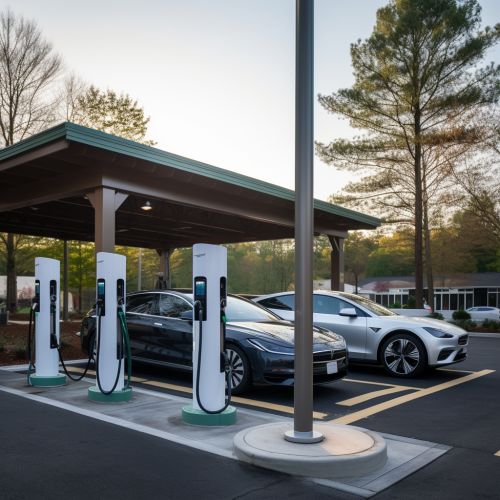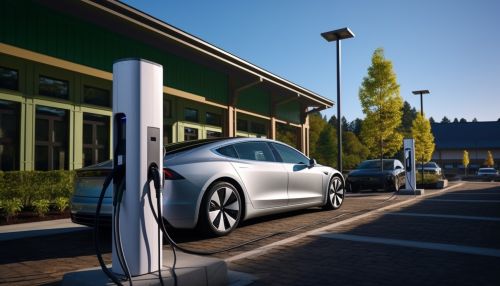Future of electric vehicles
Introduction
The electric vehicle (EV) industry has seen a significant surge in popularity over the past decade, and the future of electric vehicles is a topic of considerable interest and importance. This article will delve into the various aspects of the future of electric vehicles, including technological advancements, market trends, environmental implications, and policy changes.
Technological Advancements


One of the key areas that will shape the future of electric vehicles is technological advancements. The main components of an electric vehicle that are subject to technological improvements include the battery, the motor, and the charging infrastructure.
Battery Technology
The battery is one of the most critical components of an electric vehicle. The future of electric vehicles largely depends on advancements in battery technology, particularly in terms of energy density, charging speed, lifespan, and cost.
Motor Technology
Electric vehicle motors are another area where technological advancements are expected. Future electric vehicles will likely feature more efficient and powerful motors, which will improve performance and range.
Charging Infrastructure
The charging infrastructure is another crucial aspect of the future of electric vehicles. The development of faster and more widespread charging stations will be vital to the mass adoption of electric vehicles.
Market Trends
The market trends in the electric vehicle industry are also a significant factor in determining the future of electric vehicles. This includes the growth of the electric vehicle market, the competition among electric vehicle manufacturers, and the shift in consumer preferences towards electric vehicles.
Growth of the Electric Vehicle Market
The electric vehicle market has been growing rapidly in recent years, and this trend is expected to continue in the future.
Competition Among Electric Vehicle Manufacturers
The competition among electric vehicle manufacturers is another important market trend. As more manufacturers enter the electric vehicle market, competition will likely increase, leading to improvements in electric vehicle technology and reductions in price.
Shift in Consumer Preferences
The shift in consumer preferences towards electric vehicles is another significant market trend. As more consumers become aware of the benefits of electric vehicles, the demand for electric vehicles is expected to increase.
Environmental Implications
The environmental implications of the future of electric vehicles are also a crucial aspect to consider. This includes the reduction in greenhouse gas emissions, the impact on electricity demand, and the issues related to battery disposal and recycling.
Reduction in Greenhouse Gas Emissions
One of the main environmental benefits of electric vehicles is the reduction in greenhouse gas emissions. As the number of electric vehicles on the road increases, the emissions from the transportation sector are expected to decrease significantly.
Impact on Electricity Demand
The increase in electric vehicles will also have an impact on electricity demand. As more electric vehicles are charged, the demand for electricity will increase, which could have implications for the power grid.
Battery Disposal and Recycling
The issues related to battery disposal and recycling are another important environmental consideration. As the number of electric vehicles increases, the number of used batteries will also increase, which will require effective disposal and recycling methods.
Policy Changes
Policy changes are another factor that will shape the future of electric vehicles. This includes government incentives for electric vehicles, regulations on internal combustion engine vehicles, and policies related to charging infrastructure.
Government Incentives for Electric Vehicles
Many governments around the world are providing incentives for electric vehicles, which are expected to continue in the future. These incentives, such as tax credits and subsidies, can make electric vehicles more affordable and encourage their adoption.
Regulations on Internal Combustion Engine Vehicles
Regulations on internal combustion engine vehicles are another important policy change. Some governments are planning to ban the sale of new internal combustion engine vehicles in the future, which will likely increase the demand for electric vehicles.
Policies Related to Charging Infrastructure
Policies related to charging infrastructure are also crucial. Governments are implementing policies to promote the development of charging infrastructure, which will be essential for the widespread adoption of electric vehicles.
Conclusion
The future of electric vehicles is a complex and multifaceted topic. It involves various aspects, including technological advancements, market trends, environmental implications, and policy changes. As the electric vehicle industry continues to evolve, these factors will play a crucial role in shaping the future of electric vehicles.
